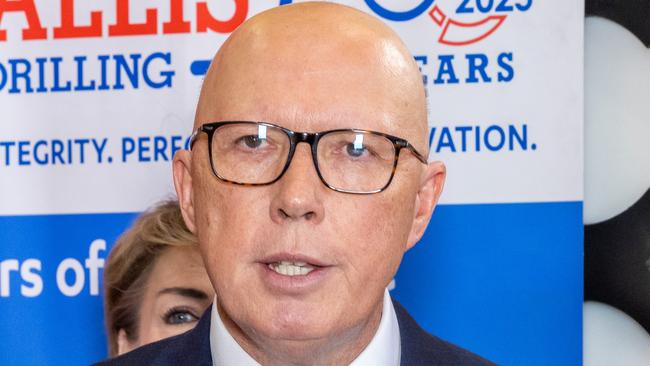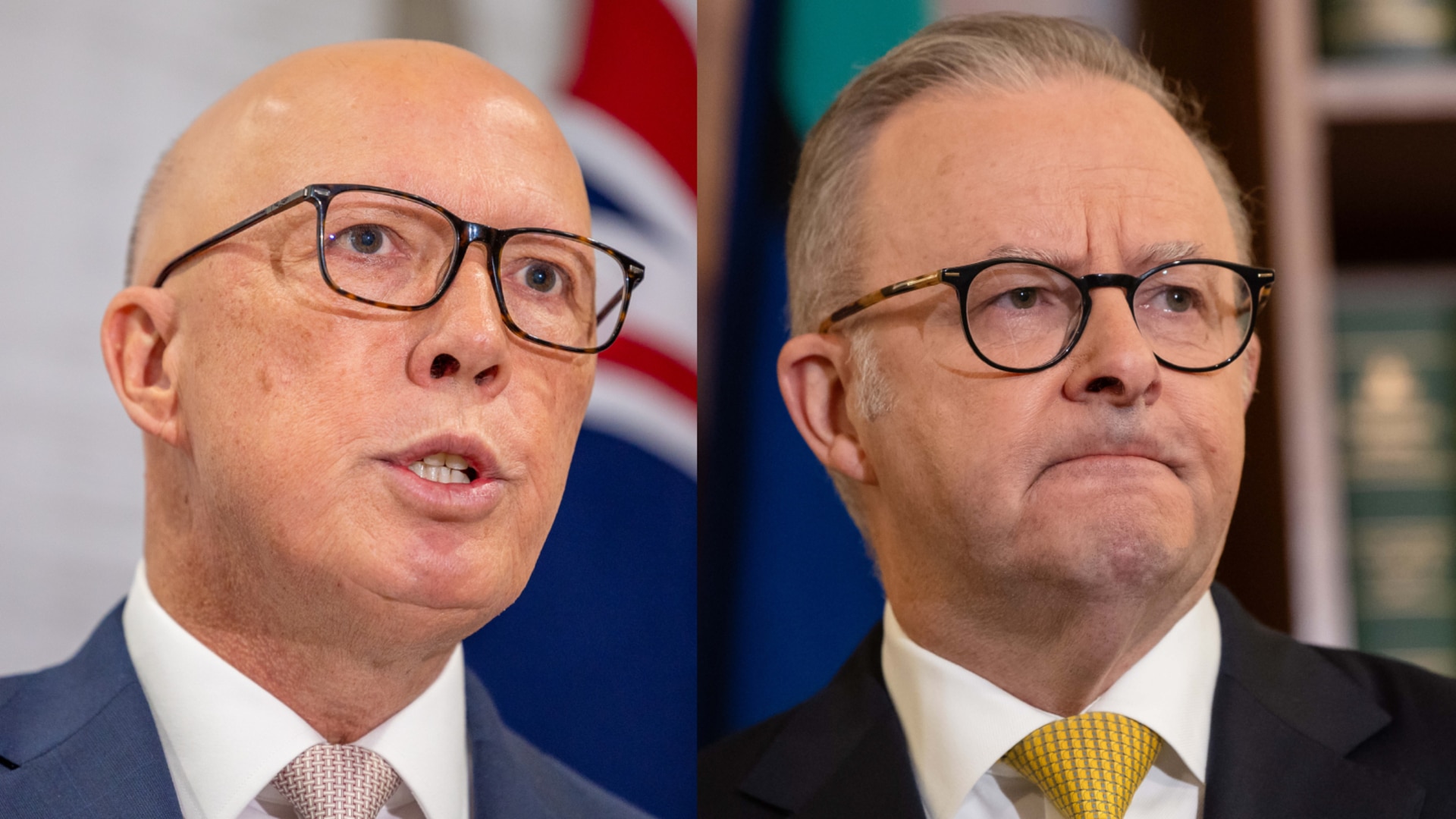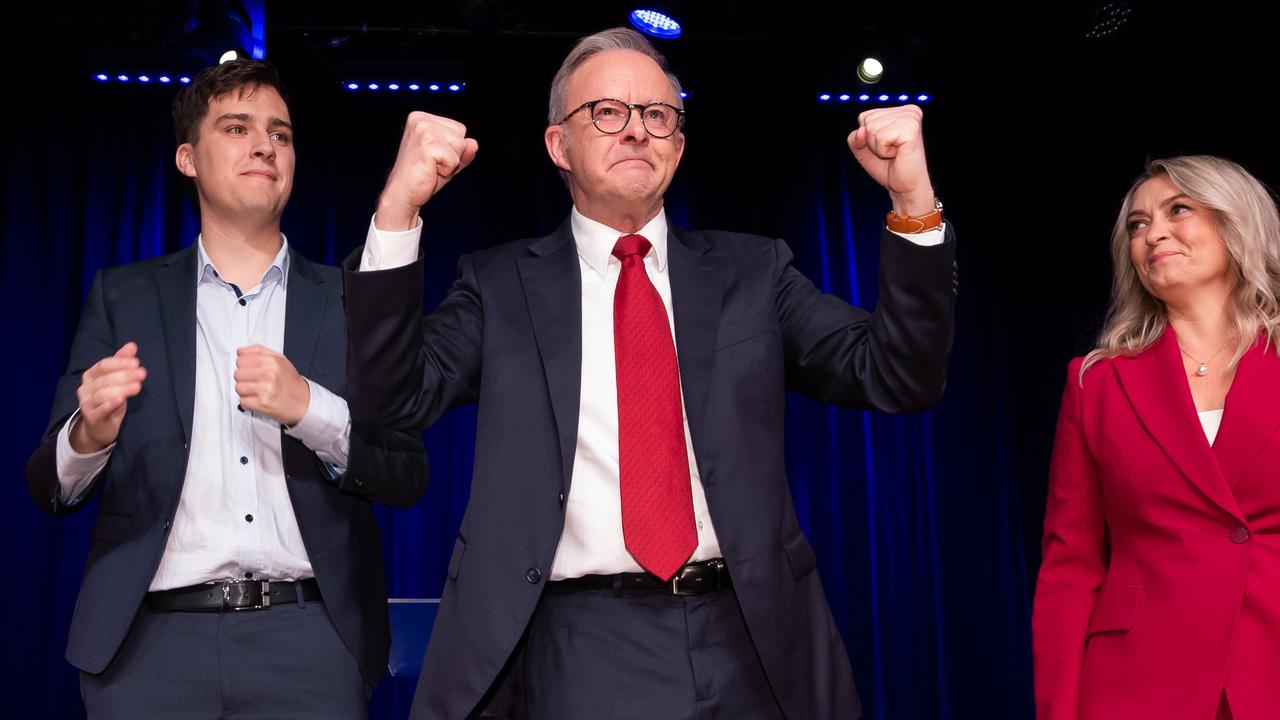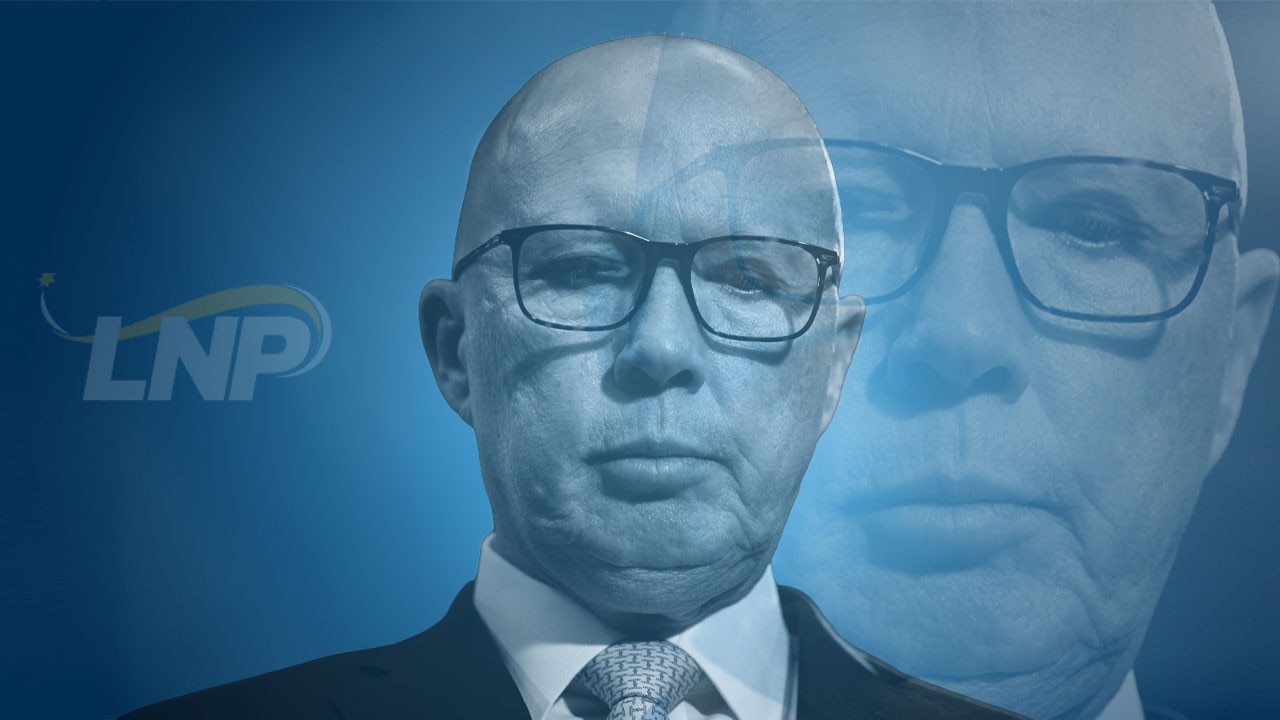Election 2025: Business puts hard word on Peter Dutton to gut IR laws
Employers will pressure a Dutton government to gut Labor’s ‘same job, same pay’ laws, despite the Opposition Leader confirming he would not seek to repeal the ALP’s contentious workplace changes.

Employers will pressure a Dutton government to gut Labor’s “same job, same pay” laws and conduct a comprehensive mid-term review of industrial relations legislation, despite the Opposition Leader confirming he would not seek to repeal the ALP’s contentious workplace changes if the Coalition won the election.
Seeking to blunt Labor’s campaign attacks over workers’ pay, Peter Dutton ruled out repealing the same job, same pay laws in a move that also reflects the likely inability of a Coalition government to get a repeal backed post-election by the Senate.
Business groups said they would try to get a Dutton government to water down the laws by lobbying for significant amendments. The Minerals Council of Australia, which spent millions of dollars trying to kill the workplace changes, said it would not be deterred by Mr Dutton’s decision.
“The federal government’s industrial relations measures are detrimental to all businesses and the Minerals Council will not stop advocating until they are changed,” MCA chief executive Tania Constable said.
Declaring “labour hire businesses were operating under a cloud of risk and uncertainty”, Australian Resources and Energy Employer Association chief executive Steve Knott said he would be pressing the Coalition for “significant amendments” to the same job, same pay laws and “to closely review them”.
Australian Industry Group chief executive Innes Willox said Labor’s broader workplace law changes, which were recently reviewed, needed to be exposed to “another proper review in 18 months or so when we will be properly able to assess their impact”.
“That first review cannot be allowed to be a set and forget. Like many of the avalanche of changes we have seen in the past three years, the impact of these changes are, as we have always said, a slow burn,” he said.

“One thing though is already certain – they are not adding to productivity, encouraging business investment or adding to any sort of national growth agenda.”
Business Council of Australian chief executive Bran Black said big business “strongly opposed the government’s recent changes to our industrial relations system and will continue to do so”. “We need an IR system that restores a sense of balance between employer and employee needs, and the absence of this right now makes it harder to grow the economy and lift real wages,” he said.
Despite vehement opposition from the mining industry, which Mr Dutton has made a fresh pitch to while in WA as part of the election campaign, he said on Thursday he would not undo the laws and instead focus on deregistering the Construction, Forestry and Maritime Employees Union.
“We’re not going to (repeal it),” he said in Perth’s eastern suburban seat of Hasluck, which Labor won from Ken Wyatt in 2022. “That’s our position.”
It follows the Prime Minister seeking to weaponise the potential for the Coalition to reverse industrial relations laws and oppose minimum wage rises.
Anthony Albanese on Thursday warned the Liberals would “undo” the gains delivered by the same job, same pay legislation, which the Labor-aligned McKell Institute predicts will lead to total annual wage increases of up to $920m. “They are promising to abolish same job, same pay, to take away all those pay rises that workers have earned,” the Prime Minister said. “Ripping money out of people’s pockets – and out of communities.”
Workplace Relations Minister Murray Watt dismissed Mr Dutton’s commitment not to repeal the laws. “If you believe Peter Dutton on same job, same pay then I’ve got a mineshaft to sell you,” he said. “Peter Dutton and his colleagues voted against the same job, same pay laws. They called it at the time un-Australian and dangerous and they said it would close down Australia.”
Mr Dutton’s refusal to repeal the laws came just a day after he said he would not stand in the way of any minimum wage rise recommended by the Fair Work Commission, accusing Mr Albanese of being “in search of a fight” over this and other key issues.
Despite risking being seen as betraying traditional Liberal values by not opposing above-inflation wage rises and leaving same job, same pay in place, Mr Dutton said he would still be a better prime minister for sectors including the mining industry than Mr Albanese. “Anthony Albanese is a threat to WA, to mining, to jobs and economic growth,” he said.
“Anthony Albanese is no Mark McGowan. It’s not even close to Roger Cook. “If … he’s elected with Adam Bandt at the election, I promise you, they will be the most anti-mining government in our country’s history.”
Labor introduced its same job, same pay legislation in 2023 to close labour hire loopholes.
It was passed with the help of the Greens and independents David Pocock and Jacqui Lambie. Mr Knott said the laws need to be changed to focus only on arrangements where there was evidence the use of labour hire was primarily to circumvent payment of another in-term enterprise agreement. “The Fair Work Commission should be prevented from making a so-called same job, same pay order unless the evidence proves labour hire is being used to undermine or undercut the client’s rates of pay,” he said.
“Unions have long claimed same job, same pay was about stopping labour hire being used to undercut or undermine enterprise agreements already bargained with the host employer.
“But the laws are so broad that unions are systemically overriding labour hire pay arrangements with those of their clients. The irony is that the very same unions are often parties to bargaining for the original labour hire rates.
“Unions are making applications without any evidence that labour hire is being utilised to undermine or undercut clients’ rates of pay. They are even making applications arguing labour hire pay rates that they recently negotiated are now somehow ‘unfair’.”
WA catapulted Labor to victory in 2022, with the party enjoying an average swing of 11 per cent while the Coalition lost blue-ribbon seats including Pearce, Hasluck, Tangney and Swan. The opposition is hoping to win at least one of those seats back.







To join the conversation, please log in. Don't have an account? Register
Join the conversation, you are commenting as Logout